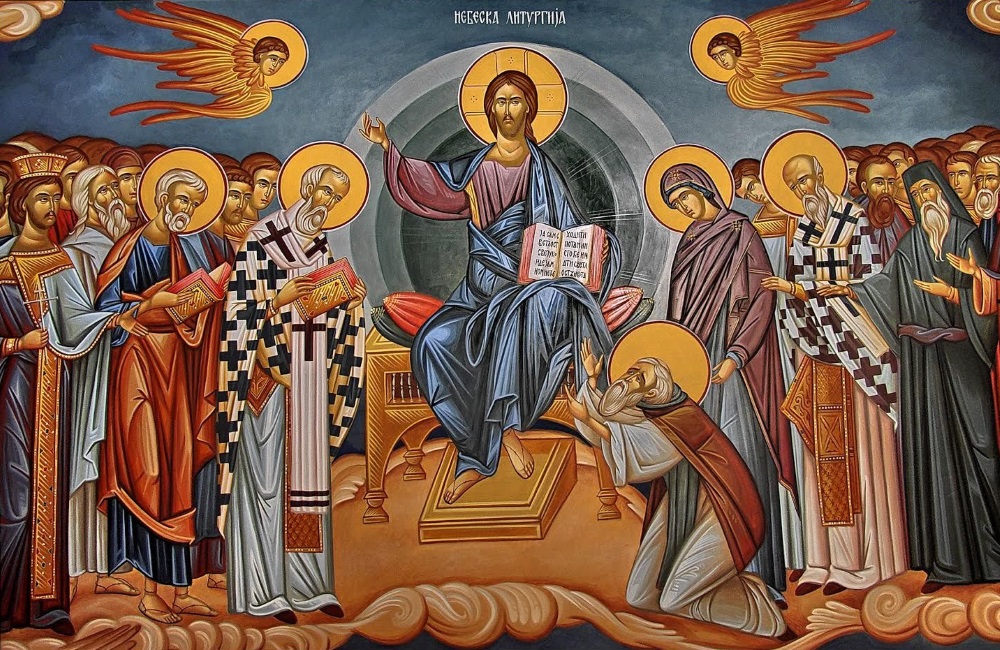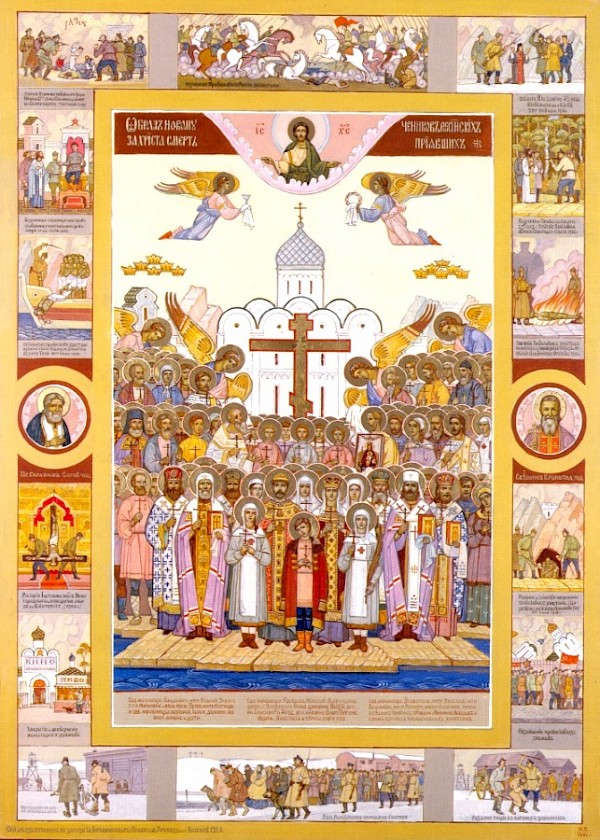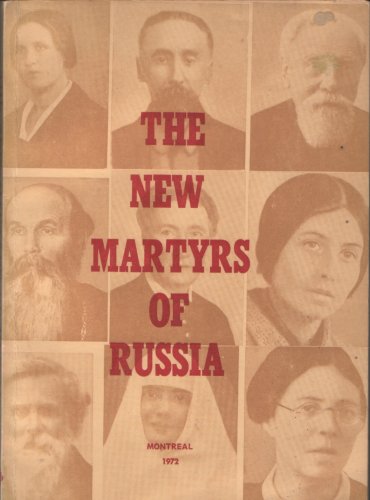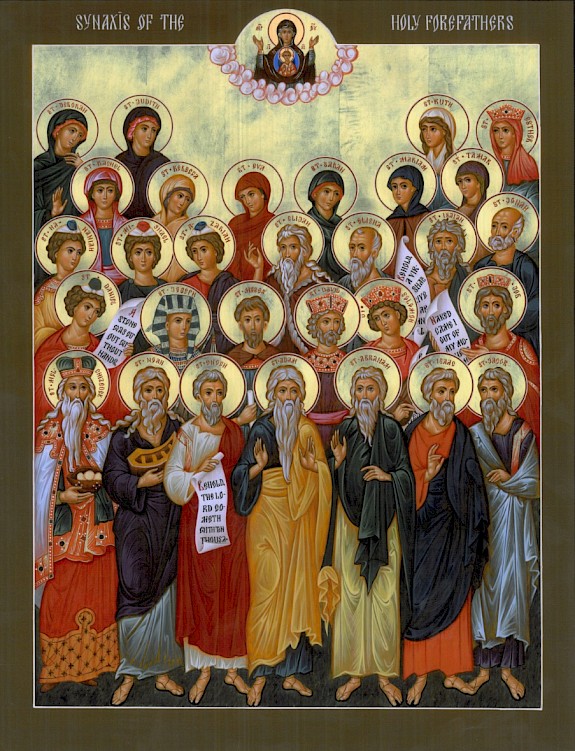
Sermon 16. On the Anniversary of the Saints.
1. If the weakness of my body should continue for as long as I have to speak and you ought to listen, we would all in fact be excused – I from teaching the commandment and you from keeping it. But because we are smitten with sickness, so that we are unable to say what we ought, let the devotion of the mind excuse us whom the demand of preaching does not. That is to say, even if we cease from the praises of the Lord with our tongue, still let us bless His wonders with works of faith; if we do not speak His glory in words, let us pursue His grace in deeds, since deeds are prior to words. For the Lord says in the Gospel: Whoever does thus and teaches thus will he called great in the kingdom of heaven (Matt. 5.19). You see, then, that the deed precedes and teaching follows, because to act well is the first way of teaching. For, when words fail, a work of great goodness itself teaches a person as long as it is visible, so that even if it does not excite the ears by a sound it still pricks hearts with its power. For who, on seeing a good action, does not rejoice, admire and imitate it, does not use it as an example and learn from it as if from a silent teacher? Deeds precede words, then, and in fact without deeds words profit nothing. And this is how the Lord wished that teaching should be done, lest without good work there be just the useless and superstitious throwing about of words.
27.06.2021Read more

When the Roman Emperor warned that those who professed Christianity would be hunted down and killed, the great Roman soldier was not afraid.
Instead of going into hiding, George the Tribune - sometimes referred to as the "Dragon-Slayer" - decided to publicly proclaim his allegiance to Jesus Christ. After selling all his property and freeing all his slaves, he strode boldly into the Roman Senate and asked to be heard. Because he was a respected officer (a Tribune in those days commanded a thousand men), he was given permission to speak.
Without hesitating, the blunt-spoken Tribune told the stunned Senators that he was a practicing Christian ... and that he had no intention of giving up his faith, regardless of the recent decision by the Emperor Diocletian (284-305) that Christians would now be persecuted throughout the land.
Stunned, the Senators shook their heads in disbelief. Then they asked him to explain why in the world he had decided to challenge the mighty Emperor's authority in broad daylight, in front of the entire Senate. But the Tribune only smiled. Then, in a bold and determined voice, he told them quite simply, according to historians of the period: "I am a servant of Christ, my God, and trusting on Him, I have come amidst ye at mine own will, to witness concerning the Truth."
06.05.2021Read more

To be read during Bright Week in place of morning and evening prayers, thanksgiving prayers after Holy Communion, the prayers of the hours, compline, and the midnight office. In this manner, the Third and Sixth Hours are chanted before Liturgy. Likewise also before Vespers, for the Ninth Hour; and once for Compline. Likewise for the Midnight Office. It is a pious tradition to substitute the Paschal Hours for morning and evening prayers during all of Bright week. In this way, we take a little rest from long prayers, but do not neglect to give joyous thanks to God, so as not to fall into despondency and gluttony, as we partake of festive foods.
If a priest is present:
The priest: Bessed is our God, always, now and ever, and unto ages of ages. Amen.
Or if there is no priest:
Through the prayers of our holy Fathers, Lord Jesus Christ our God, have mercy on us and save us. Amen.
05.05.2021Read more

Have you ever noticed, dear reader, that in all of Christ's parables there occurs but one proper name? If you have noticed, have you ever attempted to ascertain why the Lord calls only this Lazarus by name, while even his rival during his earthly sojourn remains under the general title of the Rich Man? Evidently, the Divine Teacher wished His followers to keep firmly in mind both the earthly and the eternal lot of poor Lazarus, although the main idea of the parable is concentrated nonetheless in the person of the Rich Man: Lazarus remains silent in the parable, while the Rich Man speaks and prays for himself and his brethren. The Savior's wish did not go unfulfilled: Lazarus has become a favorite theme in the songs of good Christians! The poor are comforted by such hymns amid their misfortunes, the hearts of the rich are turned from greed thereby, and all are taught to be mindful of death, the judgment of God, and generosity towards the poor. Yet, our problem remains unresolved. The parable of the Prodigal Son is also a favorite topic, if not for folk songs, at least for ecclesiastical hymns, and there are others as well in which mercy and repentance are extolled; but there are no proper names therein. Furthermore, in songs about Lazarus the singers do not draw inspiration from his name, but from the depictions of heaven and hades, the hardheartedness of the Rich Man on earth, and his belated repentance in hades.
24.04.2021Read more

What a tender scene the Meeting of the Lord shows us! The venerable elder Simeon, holding the infant God in his hands, on either side of him are the righteous Joseph and the Most Holy Mother of God. Not far away is the Prophetess Anna, an eighty-year-old faster and woman of prayer. Their eyes are all directed toward the Savior. Their attention is absorbed by Him and they drink in spiritual sweetness from Him, which feeds their souls. You can judge for yourself how blessed was the state of these souls!
However, brethren, we are called not only to think about this blessedness, but also to taste it in reality, for all are called to have and carry the Lord in themselves, and to disappear in Him with all the powers of their spirit. When we have reached that state, then our blessedness will be no lower than that of those who participated in the Meeting of the Lord. They were blessed who saw it; we shall be blessed who have not seen, but believed. Pay attention. I will show you briefly how to achieve this. Here is what you should do.
15.02.2021Read more

In the Name of the Father and the Son and the Holy Spirit!
On November 1, 1981, a most great event maybe even global is scale took place at the Cathedral of Our Lady of the Sign in New York: the Russian Orthodox Church Outside of Russia glorified that is, canonized as part of the host of saints the Holy New Martyrs and Confessors of Russia, who suffered in our tormented Homeland during the great persecution upon the Church for their faith, a persecution the world had never before seen.
From all the countries of the Russian diaspora, the limitless expanses of the United States and Canada, from the nations of Europe and South America and even Australia, Russian people traveled to New York in order to participate in this great celebration.
We, the Russian Church Abroad, glorified the Holy New Martyrs and Confessors not because they were in need of such recognition. For even without our glorification they received from God the eternal crowns through their suffering. But we glorified them in order to bear witness before the entire world of their podvig and their faith, to confess our love for them, and to state that we are spiritually united with them, that we are in need of their help and prayerful intercession.
07.02.2021Read more

'Archpriest Michael Polsky, The New Martyrs of Russia, Montreal: Monastery Press, 1972.
Books online >>> (PDF)
PREFACE OF THE PUBUSHER
"And when he had opened the fifth seal,
I saw under the altar the souls of them that were slain for the word of God,
and for the testimony which they held.” (Rev. 6: 9).
We are publishing the book, “The New Russian Martyrs” on the occasion of the fiftielh anniversary of our Russian Orthodox Church Outside of Russia. Since we represent the free part of the Russian Church, we consider it our sacred duty to act as the voice of all those who have been, and still are being, martyred and persecuted by the Communists, for confessing their belief in God.
Moreover, we have, in the number of our faithful here in the free world, tens of thousands of living witnesses to the persecution of the faith in the USSR. These are people which did not return to the homeland after the second world war and who, to this day, thank God for that freedom which they enjoy here in the west. Many of them bear upon their own bodies, scars from wounds and tortures as sacred imprints of their suffering for Christ.
06.02.2021Read more

Bishops' Council of the Russian Orthodox Church Abroad in 1981.
The Russian Orthodox Church Abroad celebrates the memory of the New Martyrs and Confessors of Russia, the Sunday nearest to the anniversary of the martyrdom of Metropolitan Vladimir of Kiev and Gallich, the first bishop killed during the Bolshevik Revolution. On November 1st 1981 the Russian Orthodox Church Abroad, under the presidency of Metropolitan Philaret, glorified all the New Martyrs and Confessors of the Bolshevik period. This epistle to the flock was delivered on the ocassion of the glorification of the New Martyrs of Russia. In it, the Bishops of the Church Abroad express the unity in spirit with the new martyrs and the catacomb church. - Edit.
To the Children of the Russian Orthodox Church in the Homeland and the Diaspora
06.02.2021Read more

06.01.2021Read more

David indicates that our Lord Jesus Christ has no genealogy with regard to His divinity (Ps 110.4), Isaiah says the same (Isa 53.8), and later so does the Apostle (Heb 7.3). How can the descent be traced of Him “who is in the beginning, and is with God, and is God, and is the Word and Son of God” (Jn 1.1-2, 18)? He does not have a Father who was before Him, and shares with His Father “a name which is above every other name” and all speech (Phil 2.9). For the most part, genealogies are traced back through different surnames but there is no surname for God, and whatever may be said of Father, Son and Holy Spirit, They are one and do not differ in any respect.
26.12.2020Read more










